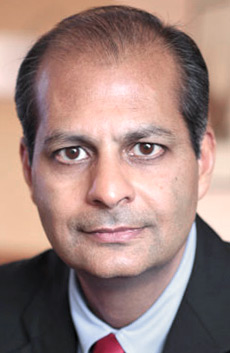

 In two weeks, final negotiations will begin on the UN's proposed Cybercrime Convention, a document which has elicited widespread concern from civil society, industry groups, and some states due to the serious risks it poses to human rights, including privacy and freedom of expression. Since 2022, GPD and other groups, including EFF, Human Rights Watch and Privacy International, have sought to alert stakeholders within the process to the need for substantial revisions... more
In two weeks, final negotiations will begin on the UN's proposed Cybercrime Convention, a document which has elicited widespread concern from civil society, industry groups, and some states due to the serious risks it poses to human rights, including privacy and freedom of expression. Since 2022, GPD and other groups, including EFF, Human Rights Watch and Privacy International, have sought to alert stakeholders within the process to the need for substantial revisions... more
 As the brand protection industry approaches a quarter of a century in age, following the founding of pioneers Envisional and MarkMonitor in 1999, I present an overview of some of the main outstanding issues which are frequently unaddressed or are generally only partially solved by brand protection service providers. I term these the 'Millennium Problems' in reference to the set of unsolved mathematical problems published in 2000 by the Clay Mathematics Institute, and for which significant prizes were offered for solutions. more
As the brand protection industry approaches a quarter of a century in age, following the founding of pioneers Envisional and MarkMonitor in 1999, I present an overview of some of the main outstanding issues which are frequently unaddressed or are generally only partially solved by brand protection service providers. I term these the 'Millennium Problems' in reference to the set of unsolved mathematical problems published in 2000 by the Clay Mathematics Institute, and for which significant prizes were offered for solutions. more
 Businesses in the financial services sector are among the most frequent targets of cybersquatters. In this free webinar, I will be joining Craig Schwartz of fTLD Registry Services to provide important information about how domain name fraud is affecting the financial services industries, including banking and insurance, and what businesses and consumers can do to protect themselves online. more
Businesses in the financial services sector are among the most frequent targets of cybersquatters. In this free webinar, I will be joining Craig Schwartz of fTLD Registry Services to provide important information about how domain name fraud is affecting the financial services industries, including banking and insurance, and what businesses and consumers can do to protect themselves online. more
 I recently appeared on the 419 Consulting podcast to discuss the European Union's NIS 2.0 Directive and its impact on the domain name ecosystem. I encourage all TLD registries, domain name registration service providers, and DNS operators to listen to the recording of that session which Andrew Campling has made available. more
I recently appeared on the 419 Consulting podcast to discuss the European Union's NIS 2.0 Directive and its impact on the domain name ecosystem. I encourage all TLD registries, domain name registration service providers, and DNS operators to listen to the recording of that session which Andrew Campling has made available. more
Akamai's Fourth Quarter, 2017 State of the Internet, was released today in which it states that the analysis of more than 7.3 trillion bot requests per month has found a sharp increase in the threat of credential abuse, with more than 40 percent of login attempts being malicious. more
 As you've undoubtedly heard, the Equifax credit reporting agency was hit by a major attack, exposing the personal data of 143 million Americans and many more people in other countries. There's been a lot of discussion of liability; as of a few days ago, at least 25 lawsuits had been filed, with the state of Massachusetts preparing its own suit. It's certainly too soon to draw any firm conclusions... but there are a number of interesting things we can glean from Equifax's latest statement. more
As you've undoubtedly heard, the Equifax credit reporting agency was hit by a major attack, exposing the personal data of 143 million Americans and many more people in other countries. There's been a lot of discussion of liability; as of a few days ago, at least 25 lawsuits had been filed, with the state of Massachusetts preparing its own suit. It's certainly too soon to draw any firm conclusions... but there are a number of interesting things we can glean from Equifax's latest statement. more
 In a June court ruling, domainer Navigation Catalyst and registrar Basic Fusion lost a cybersquatting lawsuit to Verizon... This is an extremely interesting and potentially precedent-setting case regarding domaining and domain name tasting. The court condemns both practices, leading to a preliminary injunction against the domainer and its registrar based on the Anti-Cybersquatting Consumer Protection Act (ACPA). As far as I can recall, this is the first time that a domainer has lost an ACPA lawsuit in court, and it provides an important data point confirming that domaining can be cybersquatting (a previously unresolved issue)... more
In a June court ruling, domainer Navigation Catalyst and registrar Basic Fusion lost a cybersquatting lawsuit to Verizon... This is an extremely interesting and potentially precedent-setting case regarding domaining and domain name tasting. The court condemns both practices, leading to a preliminary injunction against the domainer and its registrar based on the Anti-Cybersquatting Consumer Protection Act (ACPA). As far as I can recall, this is the first time that a domainer has lost an ACPA lawsuit in court, and it provides an important data point confirming that domaining can be cybersquatting (a previously unresolved issue)... more
 What if we created a rule that gave everyone - good or bad - the right to hide their license plate, where they live, who they are, and just go incognito? What if we made it a right to walk into any building in the world, and simply say "No, thank you" when the security guards asked for one's identification? The criminals would celebrate, and we'd all be utterly alarmed. We would immediately be afraid for our personal safety. more
What if we created a rule that gave everyone - good or bad - the right to hide their license plate, where they live, who they are, and just go incognito? What if we made it a right to walk into any building in the world, and simply say "No, thank you" when the security guards asked for one's identification? The criminals would celebrate, and we'd all be utterly alarmed. We would immediately be afraid for our personal safety. more
Colonial Pipeline, which accounts for close to half of the United States East Coast's fuel, has shut down its operations due to a cyberattack. The incident, believed to be the largest successful cyberattack on oil infrastructure in the U.S., was disclosed over the weekend. more
 When it comes to stealing domain names, I suspect that there are two reasons why so many web bandits appear to be immune from ICANN (the Internet Corporation for Assigned Names and Numbers uses the acronym ICANN): the first reason I discussed in my last column on domain name theft (where I described a substantive void in domain name "regulation" as a primary factor for the increasing incidence of domain name theft), the second reason, which is the focus of this column, is the procedural anomaly that currently infuses ICANN's uniform dispute resolution process (UDRP) by providing no administrative forum for domain name registrants who become victims of domain name theft carried out by ICANN's registrars. more
When it comes to stealing domain names, I suspect that there are two reasons why so many web bandits appear to be immune from ICANN (the Internet Corporation for Assigned Names and Numbers uses the acronym ICANN): the first reason I discussed in my last column on domain name theft (where I described a substantive void in domain name "regulation" as a primary factor for the increasing incidence of domain name theft), the second reason, which is the focus of this column, is the procedural anomaly that currently infuses ICANN's uniform dispute resolution process (UDRP) by providing no administrative forum for domain name registrants who become victims of domain name theft carried out by ICANN's registrars. more
In a video interview conducted during the NSCS ONE conference, Paul Vixie CEO of Farsight Security further discusses the topic of his presentation titled: "Defective by Design -- How the Internet's Openness is Slowly Poisoning Us". more
A group of experts from Interisle Consulting Group released a paper today, reporting a comprehensive study of the phishing landscape in 2020. The study's goal was to capture and analyze a large set of information about phishing attacks to better understand how much phishing is taking place, where it is taking place, and better ways to fight them. more
 The Internet Watch Foundation (IWF) leads the charge to combat child sexual abuse material (CSAM) online, and we at Public Interest Registry (PIR) are dedicated to supporting their efforts. We are honored to work with them across two important programs: Domain Alerts and TLD Hopping List. IWF services have been extremely successful in addressing CSAM on .ORG over the past five years more
The Internet Watch Foundation (IWF) leads the charge to combat child sexual abuse material (CSAM) online, and we at Public Interest Registry (PIR) are dedicated to supporting their efforts. We are honored to work with them across two important programs: Domain Alerts and TLD Hopping List. IWF services have been extremely successful in addressing CSAM on .ORG over the past five years more
 TL;DR? It's worth reading, BUT, if not -- ICANN has yet another group looking at WHOIS, and there is a huge push to redact it to nothing. I spend easily half my day in WHOIS data fighting online crime, losing it would not make my job harder, it will make it impossible. PLEASE JOIN THE ICANN GROUP and help us fight back against people who are fighting in favour of crime. more
TL;DR? It's worth reading, BUT, if not -- ICANN has yet another group looking at WHOIS, and there is a huge push to redact it to nothing. I spend easily half my day in WHOIS data fighting online crime, losing it would not make my job harder, it will make it impossible. PLEASE JOIN THE ICANN GROUP and help us fight back against people who are fighting in favour of crime. more
 Maybe you've seen one of the news stories about the revised Georgia statute (Georgia Code § 41-1-12) that now requires sex offenders to turn their Internet passwords, screen names and email addresses over to authorities. The purpose of the revised statute is to give authorities the ability to track what sex offenders are doing online, to, in the words of one news story, "make sure" they "aren't stalking children online or chatting with them about off-limits topics." more
Maybe you've seen one of the news stories about the revised Georgia statute (Georgia Code § 41-1-12) that now requires sex offenders to turn their Internet passwords, screen names and email addresses over to authorities. The purpose of the revised statute is to give authorities the ability to track what sex offenders are doing online, to, in the words of one news story, "make sure" they "aren't stalking children online or chatting with them about off-limits topics." more